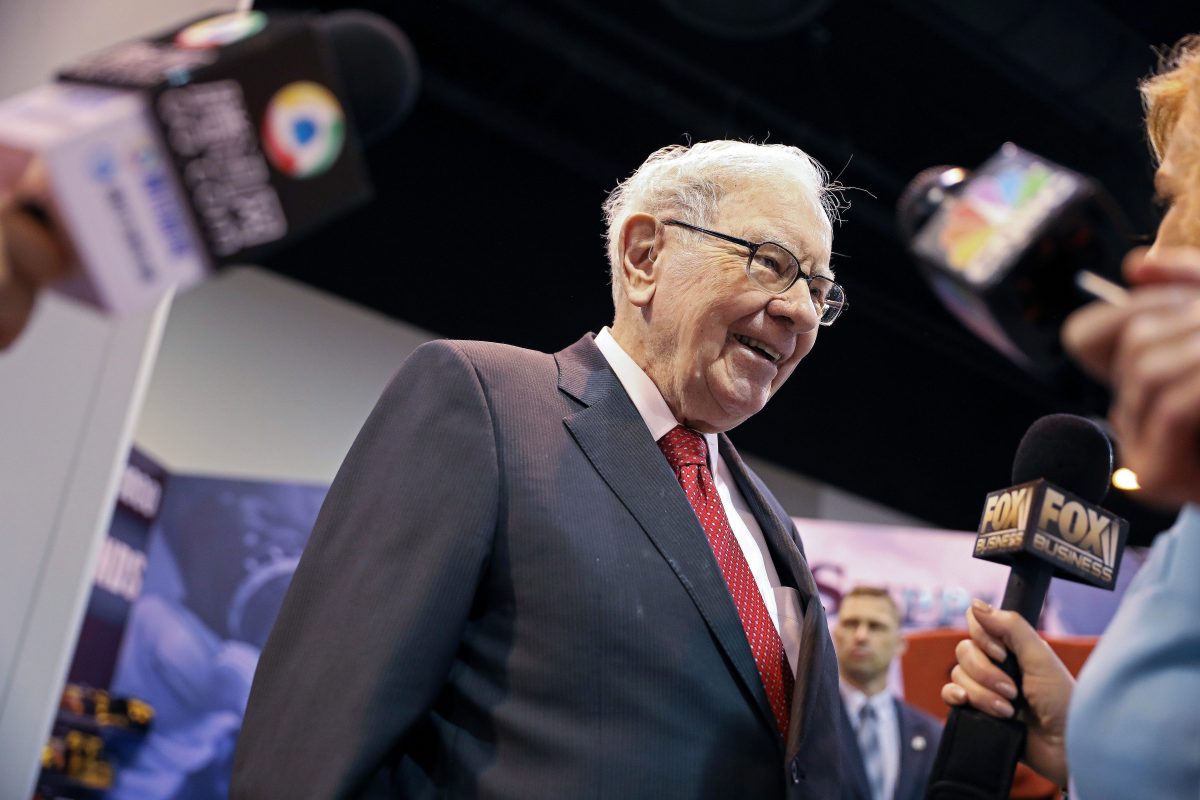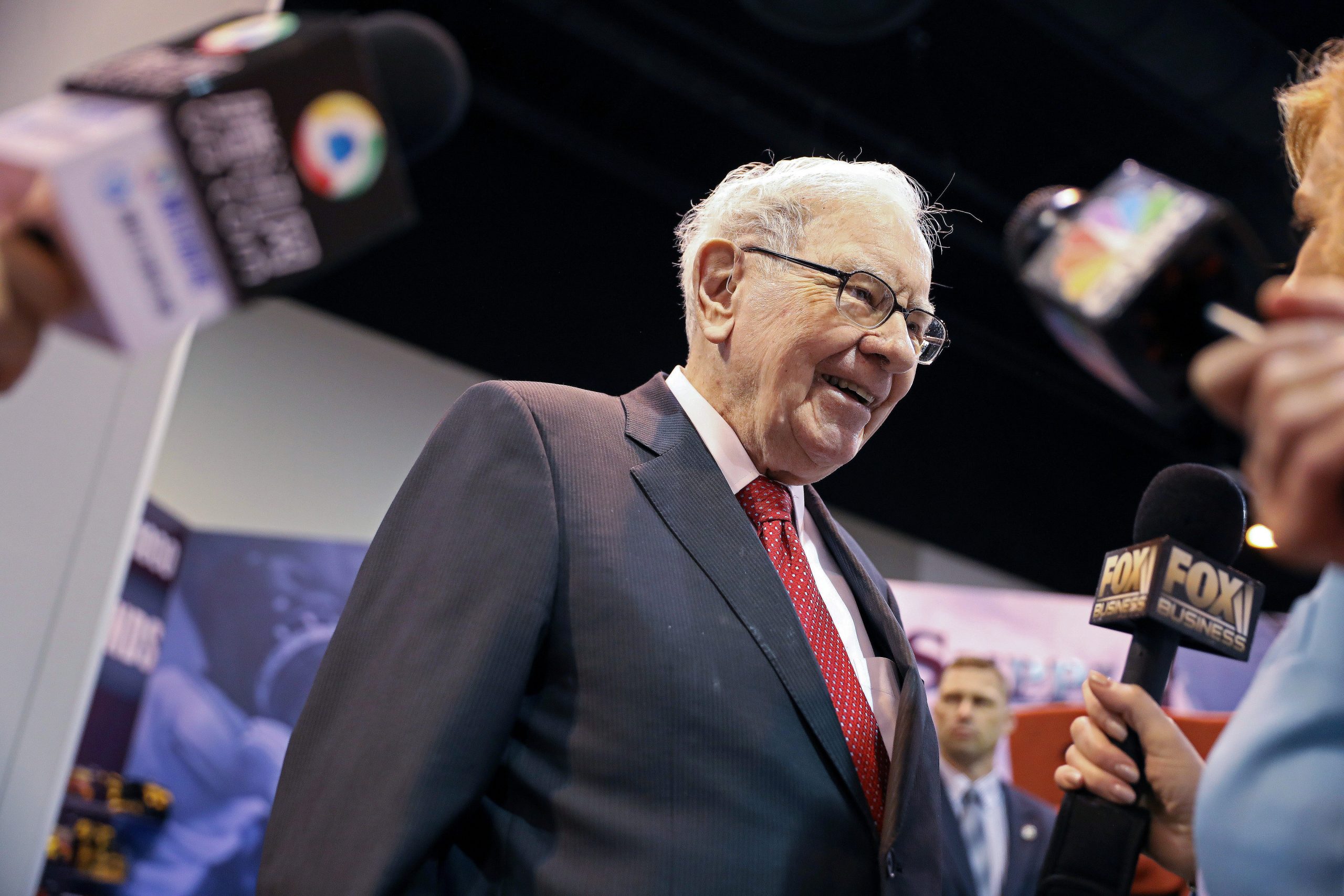The Daily Ten – Warren Buffett invests $600 million on media, Palantir valued at $22 Billion, Amazon’s home flying drones…

The Daily Ten
1. Warren Buffett is investing $600 million in EW Scripps deal to buy ION Media | Business Insider
Berkshire Hathaway, owned by billionaire investor Warren Buffett, will invest $600 million in media group EW Scripps to help finance the purchase of US broadcasting company ION Media, according to the Wall Street Journal, citing people with knowledge of the matter, on Thursday.
Berkshire will make a preferred-equity investment and will also receive a warrant to buy as many as 23.1 million Class A EW Scripps shares at $13 apiece, the WSJ said. Scripps stock was trading up by more than 70% in premarket trading at $17.10 a share, compared with $10.47 at the close on Wednesday.
Under the deal, which is set to be announced on Thursday, EW Scripps will buy ION Media for $2.65 billion. This will significantly expand the American TV station company by doubling its television station footprint and increasing distribution of its programming, WSJ quoted the sources as saying. The Journal added that $500 million in synergies is expected to come from this deal in the space of six years.
2. Why the U.S. Risks Repeating 2009’s Economic Stimulus Mistakes | New York Times
In the wake of the last recession, government spending dried up, dragging out the recovery. Policymakers warn against letting that happen again.
Trillions of dollars in federal aid to households and businesses has allowed the U.S. economy to emerge from the first six months of the coronavirus pandemic in far better shape than many observers had feared last spring.
But that spending has now largely dried up and hopes for a major new aid package ahead of the Nov. 3 election are on shaky ground, even as the virus persists and millions of Americans remain unemployed. Already, there are signs that the economic rebound is losing steam, as some measures of consumer spending growth decelerate and job gains slow. Applications for jobless benefits rose last week, with about 825,000 Americans filing for state unemployment benefits.
The combination of a moderating economic rebound and fading government support are an eerie echo of the weak period that followed the 2007 to 2009 recession. In the view of many analysts, a premature pullback in government support back then led to a grinding recovery that left legions of would-be employees out of work for years. In recent weeks, prominent economists have warned that both the United States and Europe, where many early responses are drawing to a close, were at risk of repeating that mistake by cutting off government aid too soon.
3. Palantir Expected to Be Valued at Nearly $22 Billion in Trading Debut | WSJ
Bankers have told investors stock could start trading at around $10, sources say
Palantir Technologies Inc. is expected to fetch a lofty valuation in its transition to a public company despite an unusually aggressive governance structure, in the latest sign of investors’ voracious appetite for new shares.
The data-mining-software specialist is eschewing the traditional IPO route and going public through a direct listing, in which a company floats its existing shares on a public exchange and lets the market determine the price. Ahead of a debut planned for September 30, Palantir’s bankers have told investors…
4. Job Rebound Is ‘Losing Steam’ as Crisis Passes Six-Month Mark | New York Times
New filings for unemployment benefits rose last week, signaling continued layoffs even before autumn chills outdoor business.
Six months into the pandemic-induced economic crisis, the layoffs keep coming.
About 825,000 people filed for state unemployment benefits last week, the Labor Department said Thursday. That figure, which does not reflect seasonal adjustments, is far below the more than six million a week who were filing as layoffs peaked in the spring, but higher than in the worst weeks of many past recessions. Millions are relying on unemployment benefits to meet their basic expenses.
Worse, progress is slowing: Applications for state jobless benefits rose last week, and have been falling only slowly since midsummer.
5. Amazon’s New Ring Security Camera Will Fly Around Your Home | Bloomberg
Amazon.com Inc. has built a camera on a small drone designed to fly around the house and investigate suspicious activity.
The Ring Always Home Cam moves autonomously and is equipped with an indoor camera, giving users multiple view points of their homes. The drone can take a path around the home that’s pre-determined by the user and only records when in flight, not when docked, the company said.
The device will be available in 2021 for $250, the company said during a live-stream event on Thursday.
Ring, based in southern California, makes internet-connected doorbells and home cameras. Since Amazon’s acquisition of the startup in early 2018, it has seen sales surge. Ring has also been beset by privacy concerns, from hacks of its products due to weak passwords, to reports of employees sharing unencrypted user videos.
6. Harvard’s Chetty Finds Economic Carnage in Wealthiest ZIP Codes | Bloomberg
The celebrated economist has built a data tool with a God’s-eye view of the pandemic’s damage—and soaring inequality.
Raj Chetty hasn’t eaten at a restaurant in months. In fact, he’s barely left his home near Harvard, where he’s an economics professor. The MacArthur genius grant recipient has been getting his haircuts from a stem cell biologist—his wife.
If you want to understand what’s really wrong with the economy, this is a telling symptom: Chetty used to travel widely sharing insights from his work, which mines data to paint a vividly detailed picture of inequality in the U.S. Now he, like millions of other affluent Americans, is at home. That might seem harmless—Chetty and his wife enjoy cooking together and spending time with their 5-year-old daughter—until you confront the effects on the already-precarious livelihoods of the people who fed, clothed, and pampered this professional class.
When Covid-19 hit, Chetty and his team of about 40 researchers and policy specialists dropped everything—including work on inequality in housing, higher education, and longevity—to document the pandemic’s lopsided impact. The result is a data tracker that gives a day-by-day, state-by-state, and even neighborhood-by-neighborhood view of the coronavirus economy. First uploaded in May and frequently expanded since, it relies on nonpublic, proprietary data supplied by some of America’s largest corporations to give a level of detail, in real time, that traditional economic indicators can’t match.
7. Homebuilders are holding back sales amid historic demand | Yahoo Finance
The last time Los Angeles-based custom homebuilder KB Home (KBH) saw sales like this was during the housing bubble of 2007. Now, the builder is trying to pace itself as it fields record numbers of home orders.
Homebuilders across the country sold homes at a record pace this summer, burning through their supply. To slow down the sales activity, homebuilders have started to restrain sales as they look toward preserving supply for 2021, according to economists.
“At first, builders weren’t being overly careful about holding back sales — they were just excited about how many homes they were selling. Then one day they woke up and said, ‘This demand is real, it’s sustainable and it’s burning through our lots — which are really hard to replace,’” said Ali Wolf, chief economist at Meyers Research, a California-based housing market data firm.
KB Home had a 27% increase in net orders this quarter, its highest sales pace since 2005. The spike in orders caused a 12% increase in backlogged orders and 7% fewer communities available for sale at the end of the quarter. During an investor call this week, the company said it expects “significantly higher backlog” by the end of the year, and inventory won’t rise until the second quarter of 2021.
8. Commercial real estate flounders as housing market booms | CNN Business
New York (CNN Business)The housing market is red hot thanks to record-low mortgage rates and consumers looking to flee cities for the suburbs. But offices, shopping malls and other commercial real estate properties have been hit hard by the coronavirus pandemic.
The rise of Zoom (ZM), Slack (WORK) and other productivity tools has made it easier for people to set up home offices and still get their jobs done. Meanwhile, Amazon (AMZN) and other digital retailers are flourishing amid the Covid-19 pandemic as the shift from bricks to clicks has accelerated.
“There will likely be less demand for commercial real estate due to the rising popularity of online shopping and working from home,” said Ivy Investments global economist Derek Hamilton in an e-mail.
That’s why giant corporate real estate firm Brookfield Property Partners (BPY) said it will lay off 20% of the 2,000 employees in its retail arm, which owns malls and other shopping centers that include Tysons Galleria in Virginia and the Grand Canal Shoppes at The Venetian Resort Las Vegas.
According to an internal e-mail obtained by CNN Business Tuesday, Brookfield said “our business has been frustrated, interrupted and constrained” due to Covid-19 and that “after thoughtful consideration, we have reached the heavy decision to reduce the size of our workforce.”
Still, some experts are hopeful that some pockets of the commercial real estate market will stage a comeback once the broader economy slowly rebounds.
9. Amazon launches Care Hub for family to monitor senior citizens | Venture Beat
Amazon today introduced Care Hub, a way for people to monitor the activity of older adults or people who wish to live independent lives but may need assistance from friends or family. Care Hub works through Alexa-enabled devices like Echo speakers, including the ability to ensure that if a device hears “Alexa, call for help” that it can automatically call an emergency contact. Echo devices do not allow people to call 911, but Care Hub means that as long as far-field voice recognition picks up a voice, it can call a designated contact.
Alexa also allows friends or family to monitor an activity feed by viewing it on a smart phone. Users can set Care Hub to send contacts an automatic notification if the person being monitored fails to interact with an Echo device by a certain time of the day, according to Amazon VP Daniel Rausch.
Though it may not have been the initial focus of smart speakers typically used to tell people about the weather or play music, over time more people have added home security and smart speakers to the homes of senior citizens. For example, if for example someone falls and can’t get up, a potentially deadly event that increases in likelihood with age, that person can still use Alexa far-field voice recognition to call a friend or neighbor.
10. Rise of the ghost kitchens: How virtual restaurants are reshaping L.A.’s dining economy | Los Angeles Times
It’s 11 p.m. on a weeknight and you’re hungry. Already in your pajamas, you unlock your smartphone and open a delivery app to scroll through a virtual buffet of options. One listing catches your eye: Fisher & Son’s Fish and Chips. Maybe you’ve never heard of the place, but the food, clearly displayed in enticing photos, looks solid. You add a two-piece fried cod with fries ($14.95) to your cart and hit order. A message pops up: DELIVERY ETA 25-40 MIN.
Meanwhile, at 801 N. Fairfax Ave., No. 105, a sign-less storefront beneath a block of modern-looking apartments, your fish and chips order pops onto a tablet screen with a loud ping. A cook working the line takes note and tosses a few filets and fries into the fryer while putting the finishing touches on two other orders — a roast beet and quinoa salad and a dozen mango habanero wings.
In a previous life, this kitchen space was home to Michael Cimarusti’s Cape Seafood and Provisions, a restaurant and market that closed in early 2019. But since late last year the tenant has been Byte to Bite Industries, a “market-leading virtual restaurant owner and operator” (according to its website) with locations in Hollywood, Beverly Hills, downtown and Long Beach.


